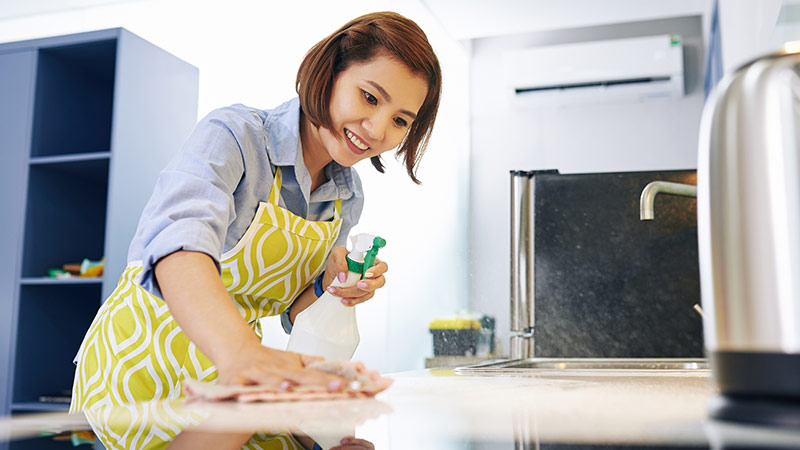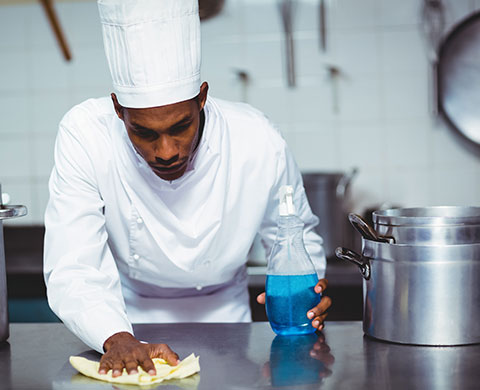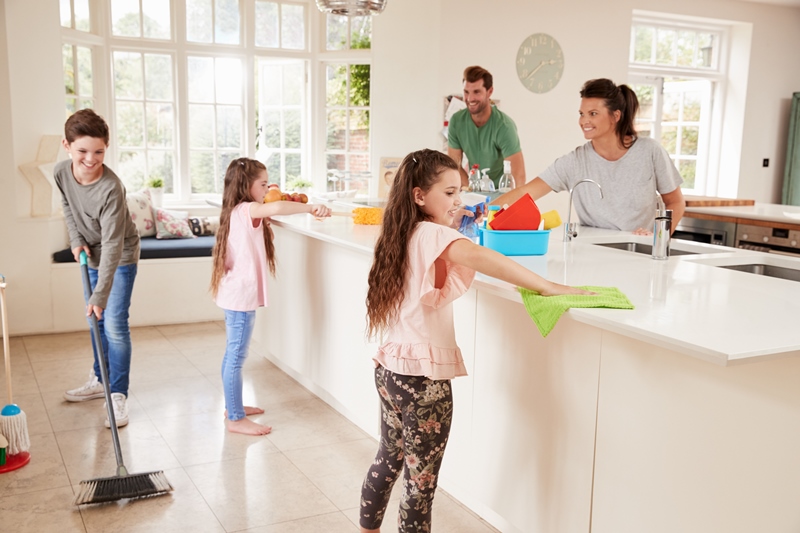Back to: Pre Vocational Studies Primary 6
Welcome to class!
Hello my clean and healthy student! I’m so happy to have you back for another very important lesson. Today, we’re going to talk about “kitchen hygiene.” This means keeping your kitchen clean and free from germs to prevent food poisoning and keep everyone healthy. It’s like washing your hands before eating or brushing your teeth to keep your mouth healthy! Let’s begin!
Kitchen Hygiene
The kitchen is where we prepare our food, so it’s very important to keep it clean and hygienic. Poor kitchen hygiene can lead to food contamination and food poisoning, which can make people very sick.

Here are the key aspects of kitchen hygiene:
- Hand Hygiene:
- Wash hands frequently: This is the most important step. Wash your hands thoroughly with soap and warm water for at least 20 seconds:
- Before starting to prepare food.
- After touching raw meat, poultry, fish, or eggs.
- After using the bathroom.
- After touching garbage or pets.
- After coughing, sneezing, or blowing your nose.
- Cleaning Surfaces and Utensils:

- Clean countertops and cutting boards: Clean these surfaces with hot, soapy water after each use, especially after contact with raw meat, poultry, or fish. Use separate cutting boards for raw and cooked foods to prevent cross-contamination.
- Wash dishes and utensils: Wash dishes, utensils, pots, and pans with hot, soapy water and rinse them thoroughly. Allow them to air dry or dry them with a clean towel.
- Clean the sink: Clean the sink regularly with a disinfectant cleaner.
- Food Storage:
- Store food at the correct temperatures: Keep perishable foods like meat, poultry, fish, dairy products, and eggs in the refrigerator at or below 40°F (4°C).
- Store dry goods properly: Keep dry goods like grains, flour, and sugar in airtight containers in a cool, dry place.
- Check expiration dates: Pay attention to expiration dates and don’t use food that has expired.
- FIFO (First In, First Out): Use older food items before newer ones to prevent them from expiring.
- Preventing Cross-Contamination:

- Separate raw and cooked foods: Keep raw meat, poultry, and fish separate from other foods in the refrigerator and during preparation.
- Use separate cutting boards and utensils: Use different cutting boards and utensils for raw and cooked foods.
- Wash hands after handling raw food: Always wash your hands after touching raw food before touching anything else.
- Waste Disposal:
- Empty garbage regularly: Empty garbage cans regularly to prevent odors and attract pests.
- Keep garbage cans clean: Clean garbage cans regularly with soap and water.
- Pest Control:
- Keep the kitchen clean and tidy: This helps to prevent pests like cockroaches, ants, and rodents from entering your kitchen.
- Store food properly: Storing food in airtight containers helps to prevent pests from getting into your food.
Let’s use some examples. Washing your hands after touching raw chicken and before chopping vegetables prevents cross-contamination. Storing milk in the refrigerator keeps it from spoiling. Cleaning the kitchen sink regularly prevents the buildup of germs.
So, to summarize, kitchen hygiene is essential for preventing food poisoning and keeping everyone healthy. Key aspects include hand hygiene, cleaning surfaces and utensils, proper food storage, preventing cross-contamination, proper waste disposal, and pest control.
Evaluation
- Why is kitchen hygiene important?
- How can you prevent cross-contamination in the kitchen?
- What are some important things to remember about food storage?
Excellent! You’re doing a fantastic job! I’m so proud of your learning. Remember, practicing good kitchen hygiene habits is a crucial part of keeping yourself and your family healthy. Keep up the amazing work!
